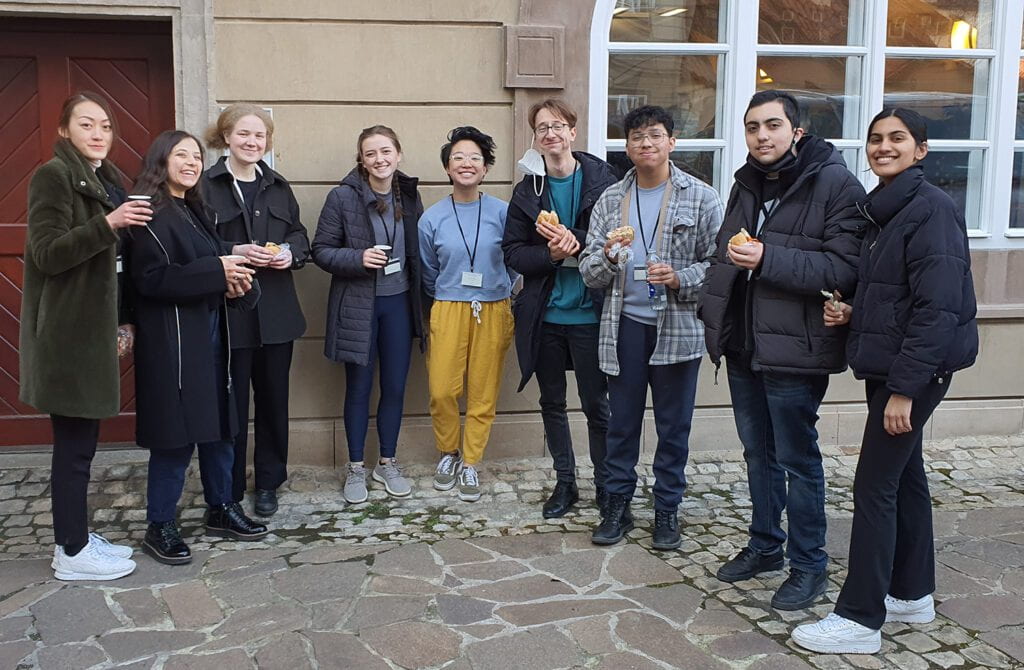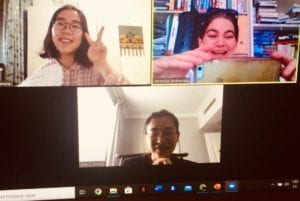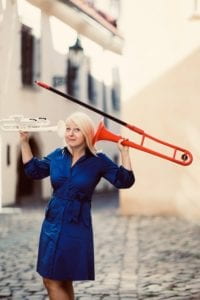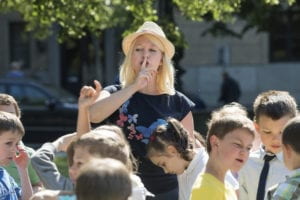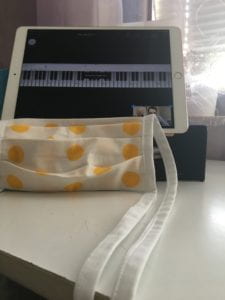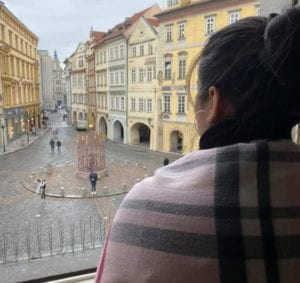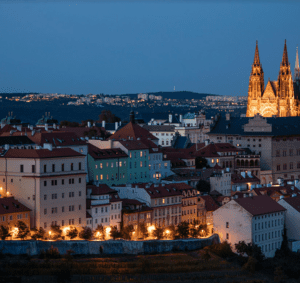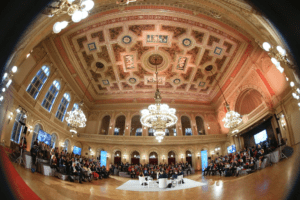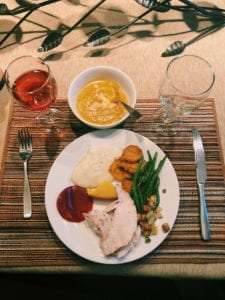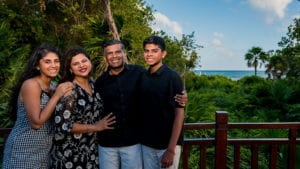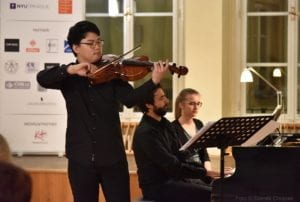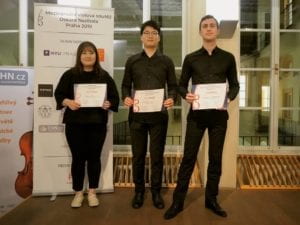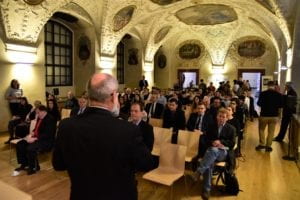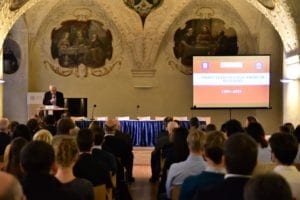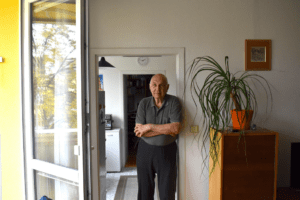By Leah Gaffen, Special Project Manager, NYU Prague
NYU Prague students get involved in local aid efforts
As the war rages in Ukraine, Czechs feel a strong sense of solidarity with their Slavic neighbors. The Czech Republic has received over 250,000 refugees since the war began, and the refugees have been generously welcomed here. There are piles of flowers and collections of candles supporting Ukraine on Wenceslas Square—the very place where Russian tanks fired on buildings in 1968 and Czechs gathered to overthrow the Communist government in 1989—and in recent weeks, tens of thousands of Czechs have gathered there to demonstrate solidarity with Ukraine.
Many NYU Prague students joined these efforts by making financial donations to local organizations or contributing canned food, hygienic goods, and other supplies to campus collections. Several even decided to get more involved. Below are some of the initiatives students have participated in so far.
Assembling Protective Gear
Putting together bulletproof vests was not a skill any NYU student expected to pick up during their semester abroad. But that is exactly what many NYU Prague students have learned to do as they support the efforts of Post Bellum, a nonprofit organization that has raised over $5 million to supply protective equipment for soldiers in Ukraine. Enlisting the help of volunteers is the fastest way for the Prague-based organization to assemble and transport bulletproof vests.
NYU Prague students joined the first volunteer brigade last Tuesday, which took place at the Czech Senate. Olivia Puntenney, a sophomore prehealth student majoring in Instrumental Performance, was one of them. “We arrived at the Czech Senate, where a room was set aside for us. Then the iron plates that go into the vests arrived in a truck, and we formed an assembly line to get them inside,” she says. The leaders and volunteers figured out how to put the protective material inside the vests, including the heavy metal plates, making a material “sandwich.” The vests, which weigh over 22 pounds when completed, can protect someone from the most common weapons used by the Russian army.
Since then, the organizers moved to a warehouse in the Prague suburbs that can accommodate more volunteers. However, NYU Prague students, along with students from other local universities and high schools, continue to participate. Within the first week, Post Bellum took truckloads of over 2,000 vests to the border. They plan to send at least 10,000 more, and the volunteer brigades will continue.
“It was such a strong experience. And so humbling as we spoke to volunteers whose families were in Ukraine,” says Olivia. “It felt good to be able to donate our time and do as much as we could.”
Students for Ukraine Livestream
On March 3, NYU Prague students rolled out of bed at 4:30 a.m. (CET) and onto the tram. Their destination? The National Theatre, where they were part of a 72-hour nonstop livestream organized by Students for Ukraine, a Prague-wide network launched by local Prague Academy of Performing Arts university students. They galvanized students, artists, activists, Czech TV film crews, and the National Theatre’s production department to raise awareness and money through this livestream, entitled Wake Up for Ukraine.
Olivia, a violaist who organized Music For Change concerts when she was in high school, knew she had to be a part of this event. She recruited several other students who weren’t afraid of performing in front of a camera—or setting their alarm clocks early enough for the 6:15 a.m. (CET) call time.
Undergraduate Mason Bleu stayed up most of the night before writing a poem titled “We Ask,” which he performed during the livestream. Hannah Butts and Sasha Jones, both part of NYU’s ballet company for nonmajors, dusted off their dance shoes and debated whether or not it was appropriate to perform to Russian music.
“Because we arrived so early in the morning it was so cold, but the organizers greeted us with coffee and tea. It was so professionally run, with incredible cameras. I was amazed students had put this together in two days,” says Olivia. The NYU Prague students joined dozens of other students and artists who expressed their horror at the violence in Ukraine through singing, concerts, live painting, dance, discussion, experimental theatre, and more. The goal was to bring people together to express support for Ukraine in the midst of Russian aggression while raising money for the humanitarian organization People in Need.
Below is Mason’s original poem, “We Ask,” which he performed at Wake Up for Ukraine.
We Ask
By Mason Bleu
we ask
for peace and love spread through the clouds
instead of smoke from fighting making ears ring loud
when times are hard and there’s no redress
(and even in this time of stress)
we ask for peace and quiet to lay youth to rest
from broken trust that can’t be mend
solidarity placed in neighbors who disguised themselves as friends
we ask for pain to be relieved
battlefields turned into trees
for life is lost in times of war
where protectors pass for the lives of more
we ask that life return to those lost in fight
through memory we ask to always keep their light
their hearts so pure intentions right
the goal of freedom always in sight
we ask that things can change tonight
and for freedom we ask; it is your right
Ukraine with you we’ll always stand
with you we rise and take a chance
with you we fight hand in hand
we ask that they get off your land.
